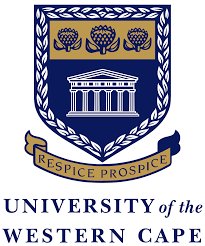The University of the Western Cape, UWC Admission Requirements: 2019/2020 for all the courses at the undergraduate, diploma and postgraduate level is updated below for all interested candidates

In order to study at the University of the Western Cape the applicant must have met the following criteria:
- The National Senior Certificate (NSC) required for Degree, Diploma or Higher Certificate study, as appropriate.
- To qualify for the National Senior Certificate (NSC), a learner needs seven subjects consisting of four compulsory subjects and three subjects of the learner’s choice.
- The four compulsory subjects are two languages, one being the students Home Language and the other a first additional Language, Life Orientation and either Mathematics or Mathematical Literacy.
- The learner has to achieve a rating of at least 4 (50-59%) for four designated subjects in order to be eligible for degree study.
- In addition to the above, UWC has its own programme requirements which are specified in the tables below.
Admission Criteria and Information
General Admissions Criteria
The minimum admission requirement for Bachelor`s degree studies is a National Senior Certificate (NSC) with an achievement rating of 4 (adequate achievement, 50-59%) or higher in at least four subjects chosen from the 20-credit NSC subjects (known as the `designated subject list’).
These are:
Accounting
Agricultural Sciences
Business Studies
Dramatic Arts
Economics
Engineering
Graphics and Design
Geography
History
Consumer Studies
Information Technology
Language (one language of learning and teaching at a higher education institution and two other recognised language subjects)
Life Science
Mathematics
Mathematical Literacy
Music
Physical Sciences
Religion Studies
Visual Arts
UWC’s Points System
For admission to degree and diploma programmes, UWC uses a weighted system for calculating points. In order to be admitted to degree studies, the candidate should have attained the required points score as determined per programme.
In addition to the general criteria for admission to the university mentioned above, additional programme specific criteria must be met to qualify for admission to particular study programmes. These are detailed in the faculty chapters.
*All applicants will be required to write the National Benchmark Test (NBT). This test serves as a placement measure and assists faculties in determining the required academic support.
Alternate Admission Requirements
Applicants who do not meet the admissions requirements of the university may still be admitted to studies. The Senate of the universities has the right to admit students using other criteria. This is a way of meeting the needs of two other groups of people: those who have done well in their exams, but whose subject choices prevent them from qualifying for university, and those who have left school some time ago and have worked at other things, and who can show that they are ready for university studies.
Senate Discretionary Admissions
The University Senate may admit students without an endorsement or matric exemption if it considers them suitably qualified. They are admitted with a conditional exemption only after they have successfully completed a selection process which may include a personal interview, tests of written and oral communication and numeracy, and other means of determining ability. Students in this category are then given additional support. After a successful first year, a full exemption is awarded and the student then continues with studies.
Recognition of Prior Learning (RPL)
This is the formal acknowledgement of the knowledge and capabilities people have acquired as a result of prior learning – through formal and informal means including study, work or life experience. Contact the Division of Lifelong Learning for more information.
Foundational Support Programmes
In some cases, students will be admitted to the university only if they enrol for the foundation programmes. The support offered in these programmes consists of a lighter course load and intensive assistance in helping students gain the skills needed for successful university study. Foundational programmes offered are Humanities, for students in the Arts and Law faculties; Commerce, for students in the Economic and Management Sciences Faculty; programmes for students in the Science Faculty; some programmes in the Community and Health Sciences Faculty and the Education Faculty.



